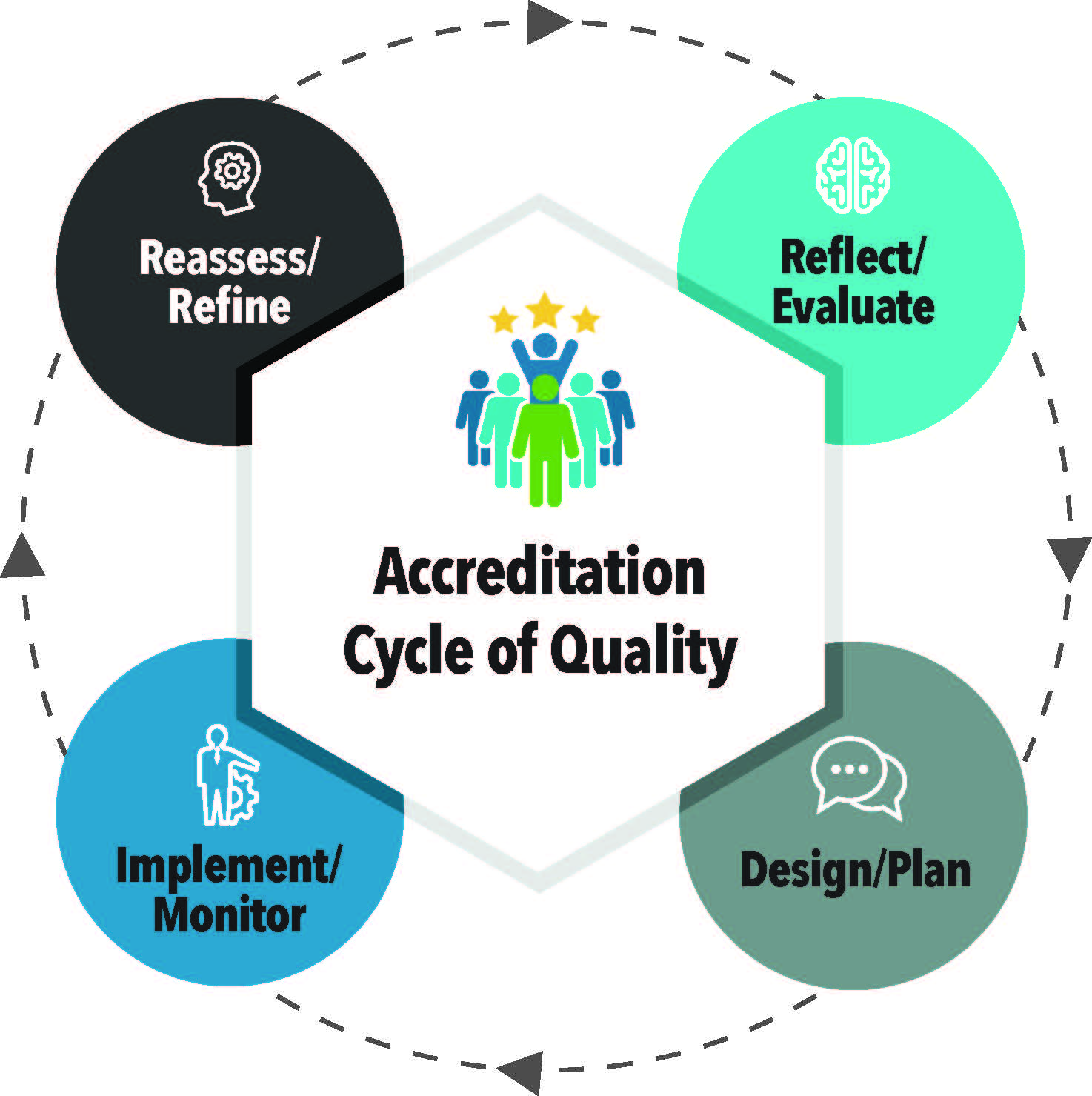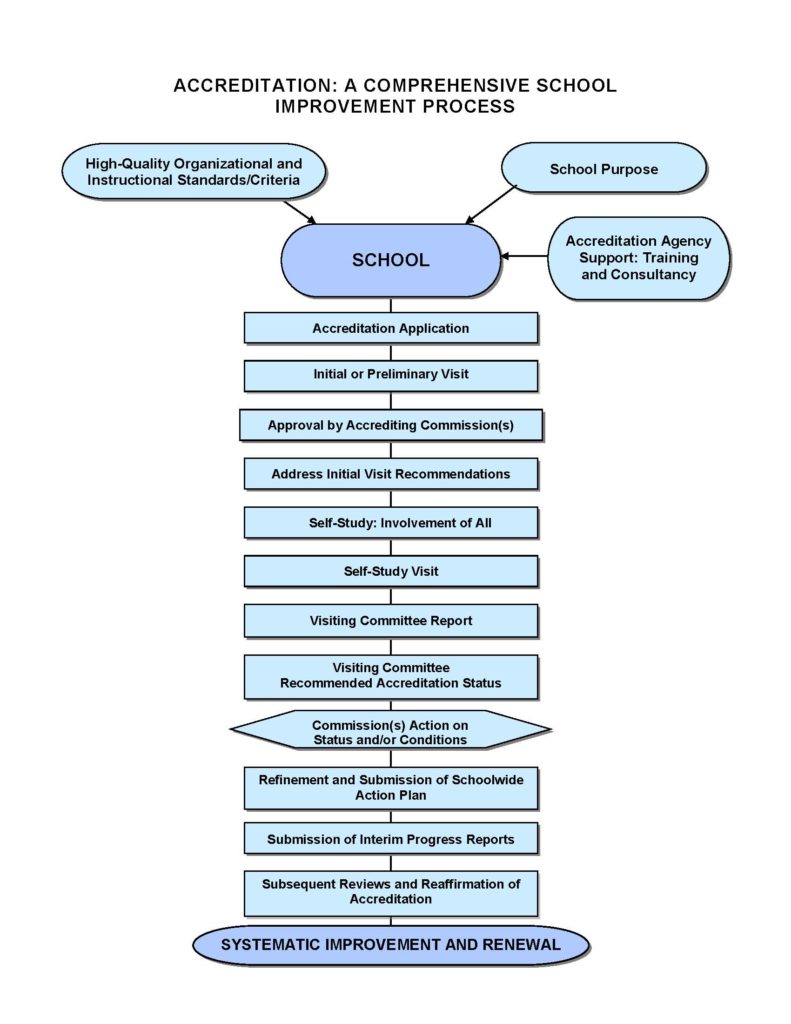ACS WASC Overview
The Accrediting Commission for Schools, Western Association of Schools and Colleges (ACS WASC), a world-renowned accrediting association and one of the six regional accrediting agencies in the United States, works closely with the Office of Overseas Schools under the U.S. Department of State. ACS WASC provides assistance to schools worldwide, especially in California, Hawaii, Guam, Asia, the Pacific Region, the Middle East, Africa, and Europe.

The Accrediting Commission for Schools, WASC, extends its services to over 5,200 public, independent, church-related, and proprietary pre-K–12 and adult schools, works with 20 associations in joint accreditation processes, and collaborates with other organizations such as the California Department of Education (CDE). CDE has collaborated with ACS WASC in order to align the accreditation process with the planning process for California public schools required by state and federal statutes in the School Plan for Student Achievement (SPSA) and the Local Control Accountability Plan; the ACS WASC/CDE Focus on Learning (FOL) Joint Process Guide is the collaborative process that helps schools engage in continuous school improvement that focuses on high-quality learning and well-being for all students. Other examples of partnership include working with the International Baccalaureate, the Council of International Schools; the Hawaii Department of Education, and other educational organizations. ACS WASC also collaborates with the University of California regarding the a-g course requirements.
The ACS WASC Commission is composed of 35 representatives from the educational organizations that it serves; this includes representatives from the Association of California School Administrators, Association of Christian Schools International, California Department of Education, California School Boards Association, California Charter Schools, California Teachers Association, California Federation of Teachers, East Asia Regional Council of Schools, Hawaii State Department of Education, National Lutheran School Accreditation, Pacific Union Conference of Seventh-day Adventists, and the Western Catholic Educational Association.
ACS WASC Mission
ACS WASC advances and validates quality ongoing school improvement by supporting its private and public elementary, secondary, and postsecondary member institutions to engage in a rigorous and relevant self-evaluation and peer review process that focuses on student learning.
Why Accreditation?
- Assures a school community that the school’s purposes are appropriate and being accomplished through a viable education program — a trustworthy institution for student learning.
- Validates the integrity of the school’s program and transcripts.
- Facilitates transfer of credits to other English-speaking schools — critical for college/university acceptance worldwide.
- Provides a process for regularly examining programs, processes, and data around school goals and student learning through data analysis, reflection, inquiry, and dialogue.
- Builds a professional culture to support the schoolwide action plan.
- Fosters the continuous improvement of the school’s programs and operations to support student learning.
- Provides valuable insight from fellow educators visiting the school.
- Benefits schools that choose joint accreditation or other collaborative processes, e.g., ACS WASC/HIDOE and ACS WASC and IBO.
ACS WASC Accreditation Process

Initial Visit Process
- The purpose of the one- or two-day visit by a two-member team is to understand the school’s purpose, its program, and operations based upon the ACS WASC criteria and detailed school description.
- If the Commission grants initial accreditation or candidacy, the school addresses recommendations from the visiting committee report and completes first full self-study by the end of the third year.
Self-Study Process/Self-Study Visit
- Involvement of all stakeholders in the self-study process.
- Clarification of the school’s purpose and the schoolwide learner outcomes.
- Assessment of the student program and its impact on student learning with respect to the ACS WASC criteria.
- Development of a schoolwide action plan that addresses identified areas for improvement.
- Visiting committee validation and enhancement based on accreditation criteria and standards, self-study, and findings from the visit.
- Builds a professional cultures to support the schoolwide action plan.
Follow-Up Process
- Annual assessment of the action plan progress and refinement of the plan as needed.
- Completion of progress reports and/or reviews, e.g., annual reports.
- Celebration of success.
(Information from https://www.acswasc.org/about/acs-wasc-overview/)

